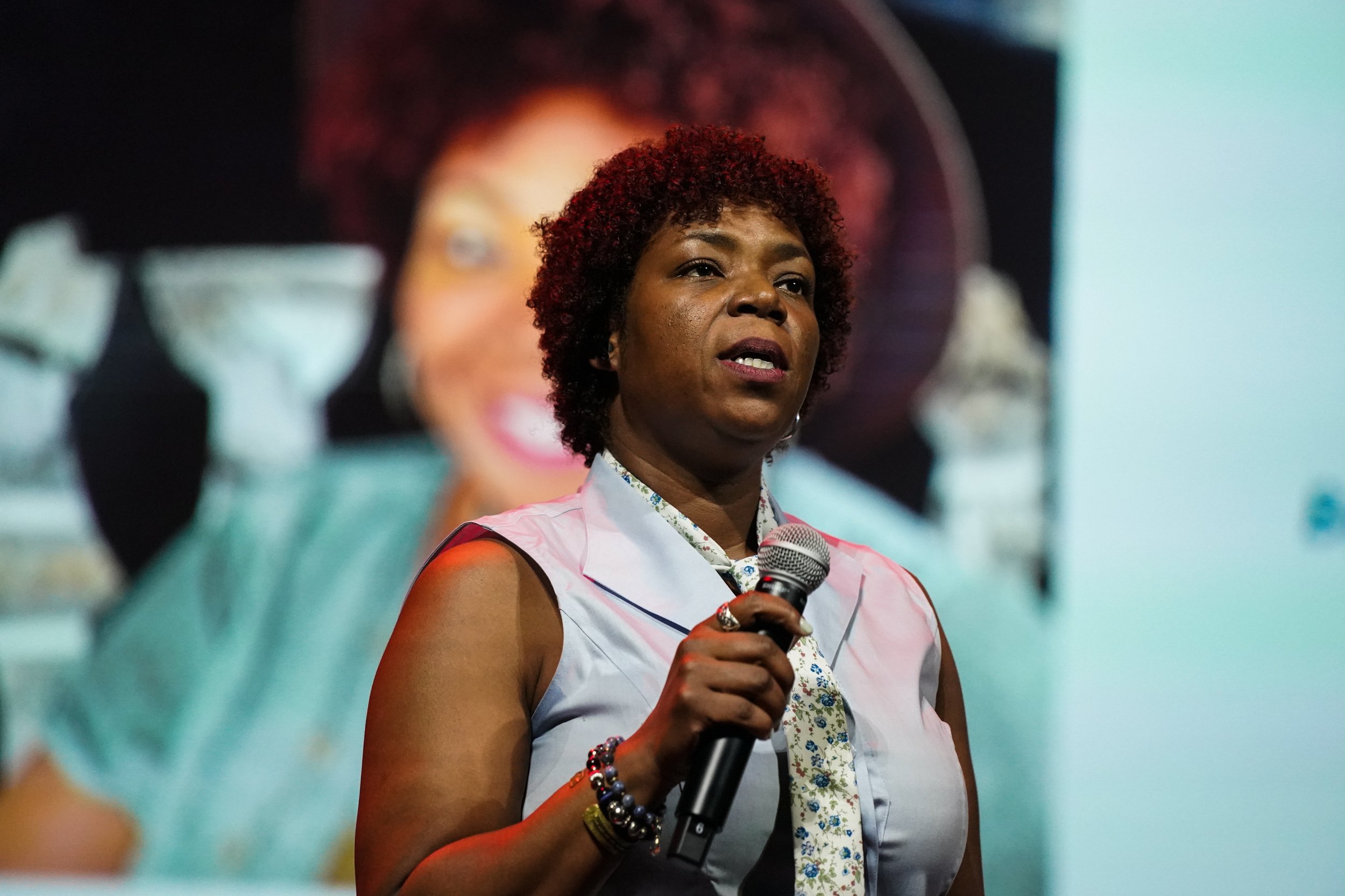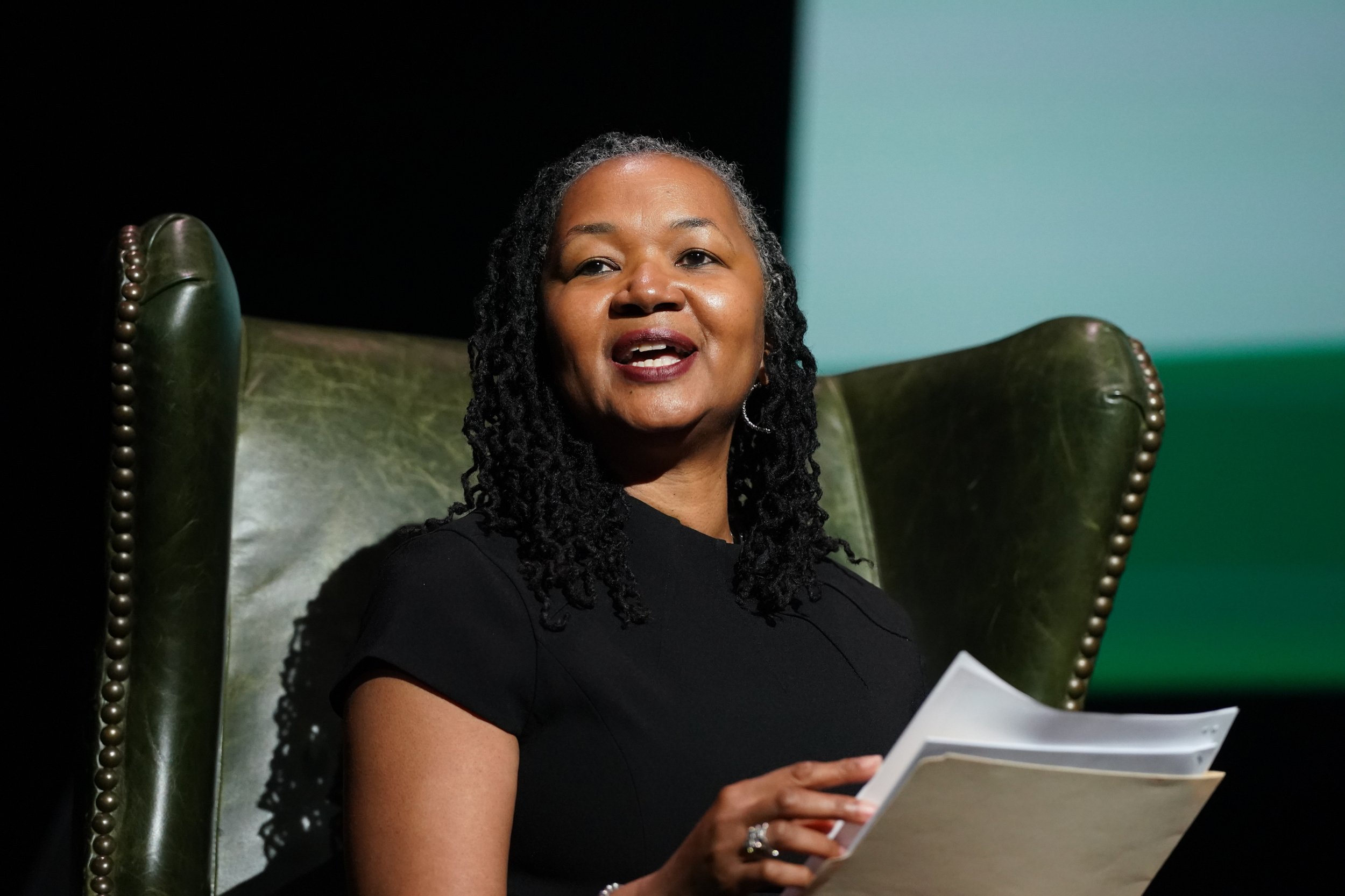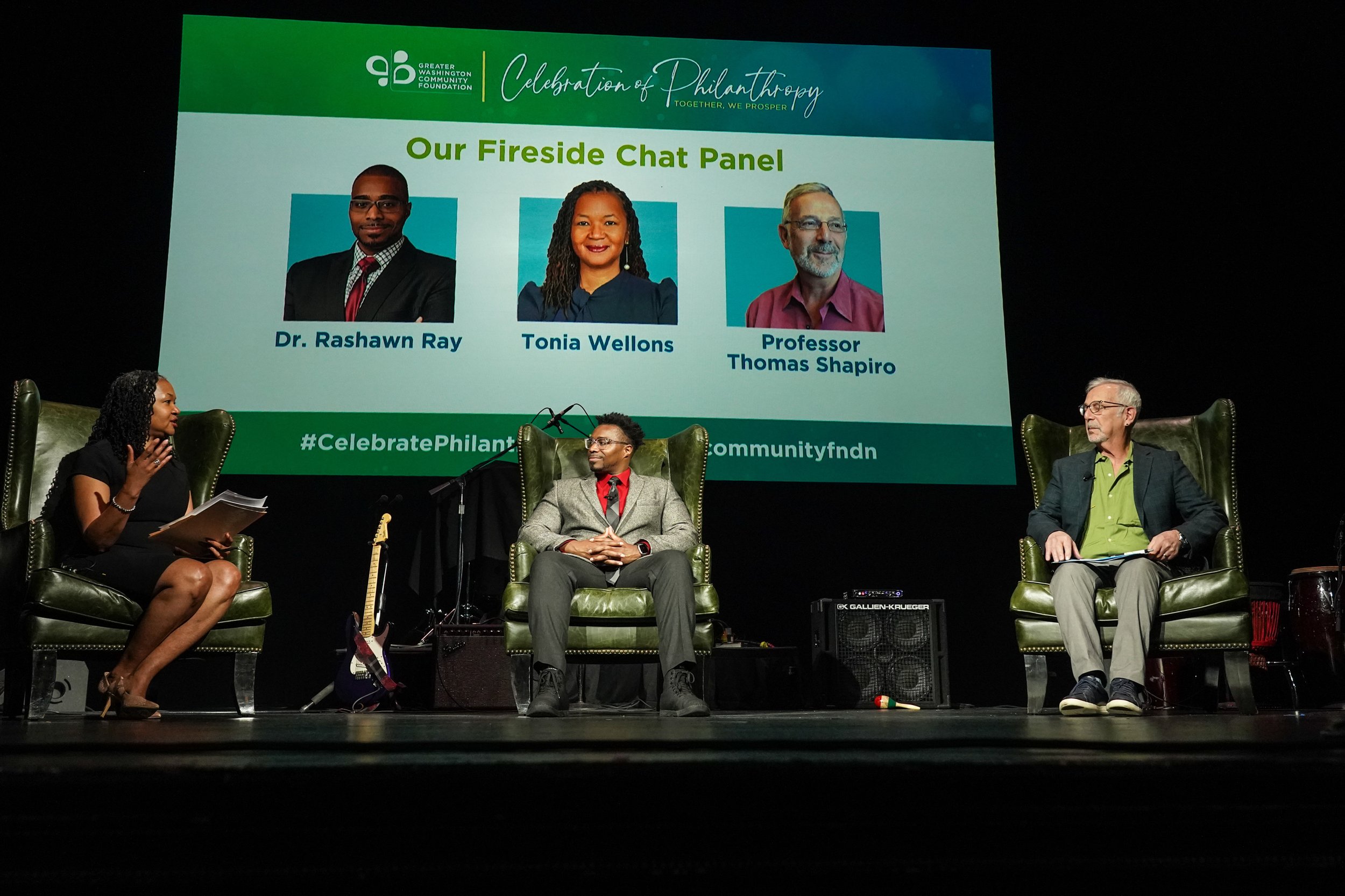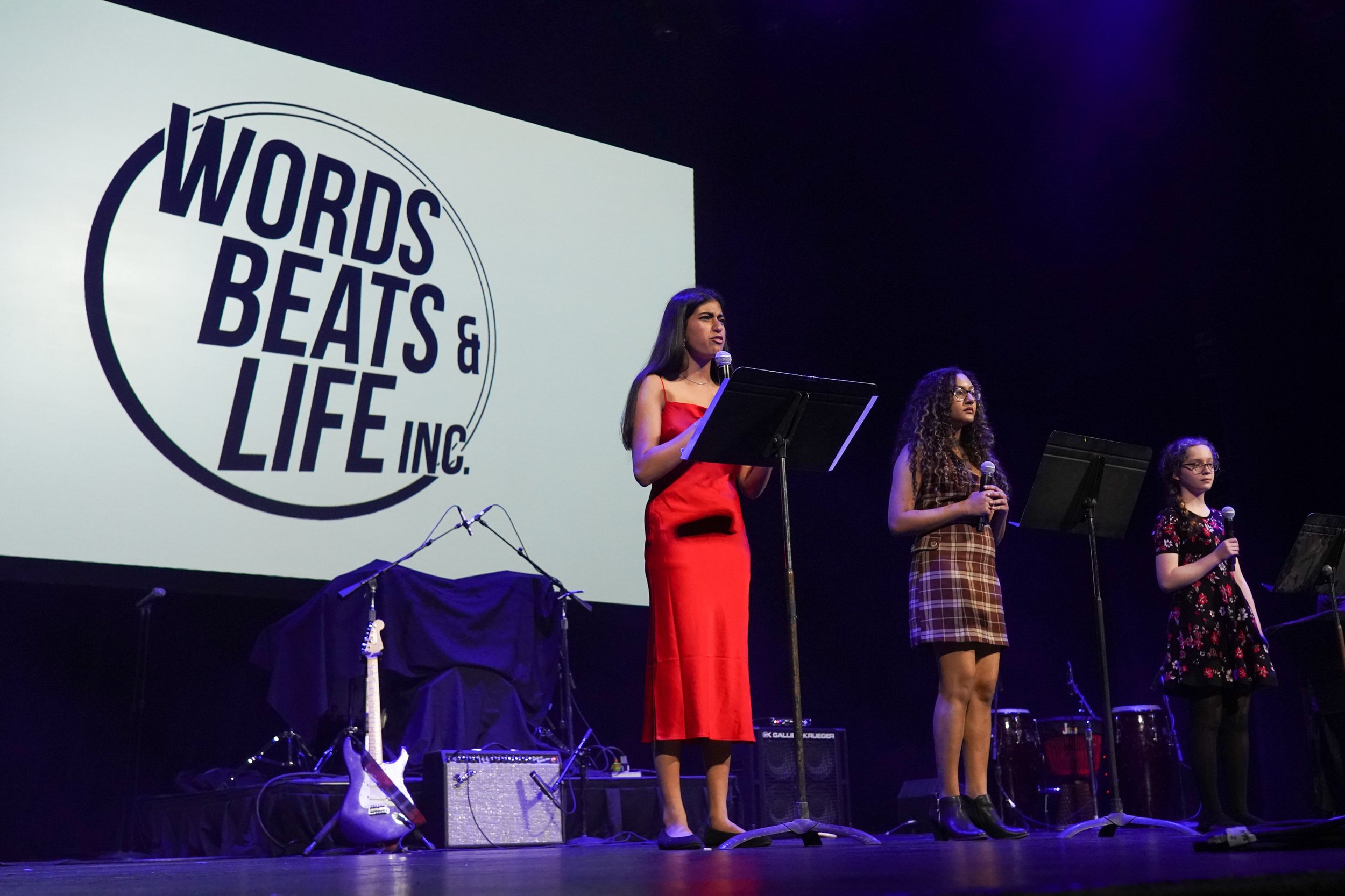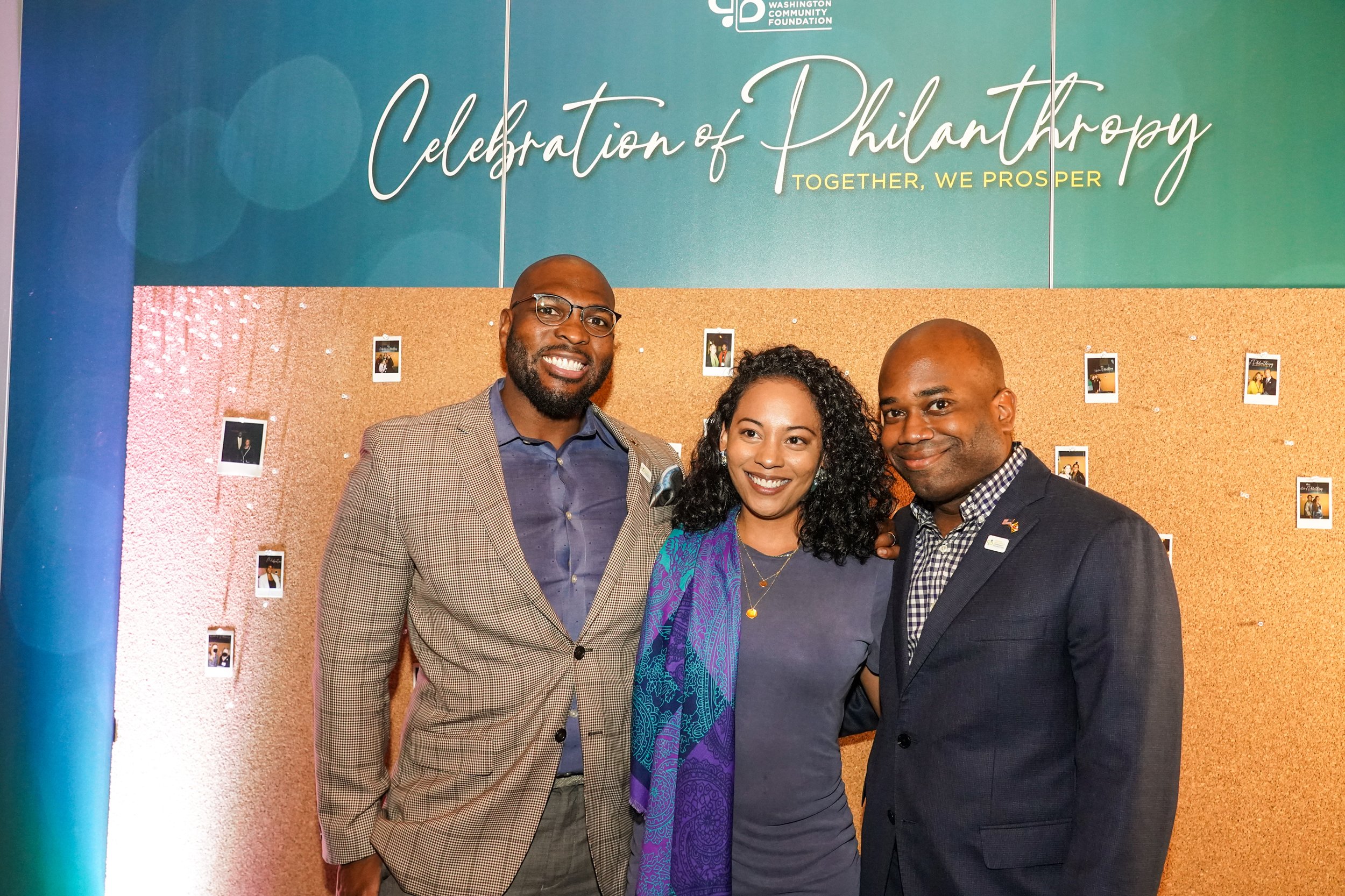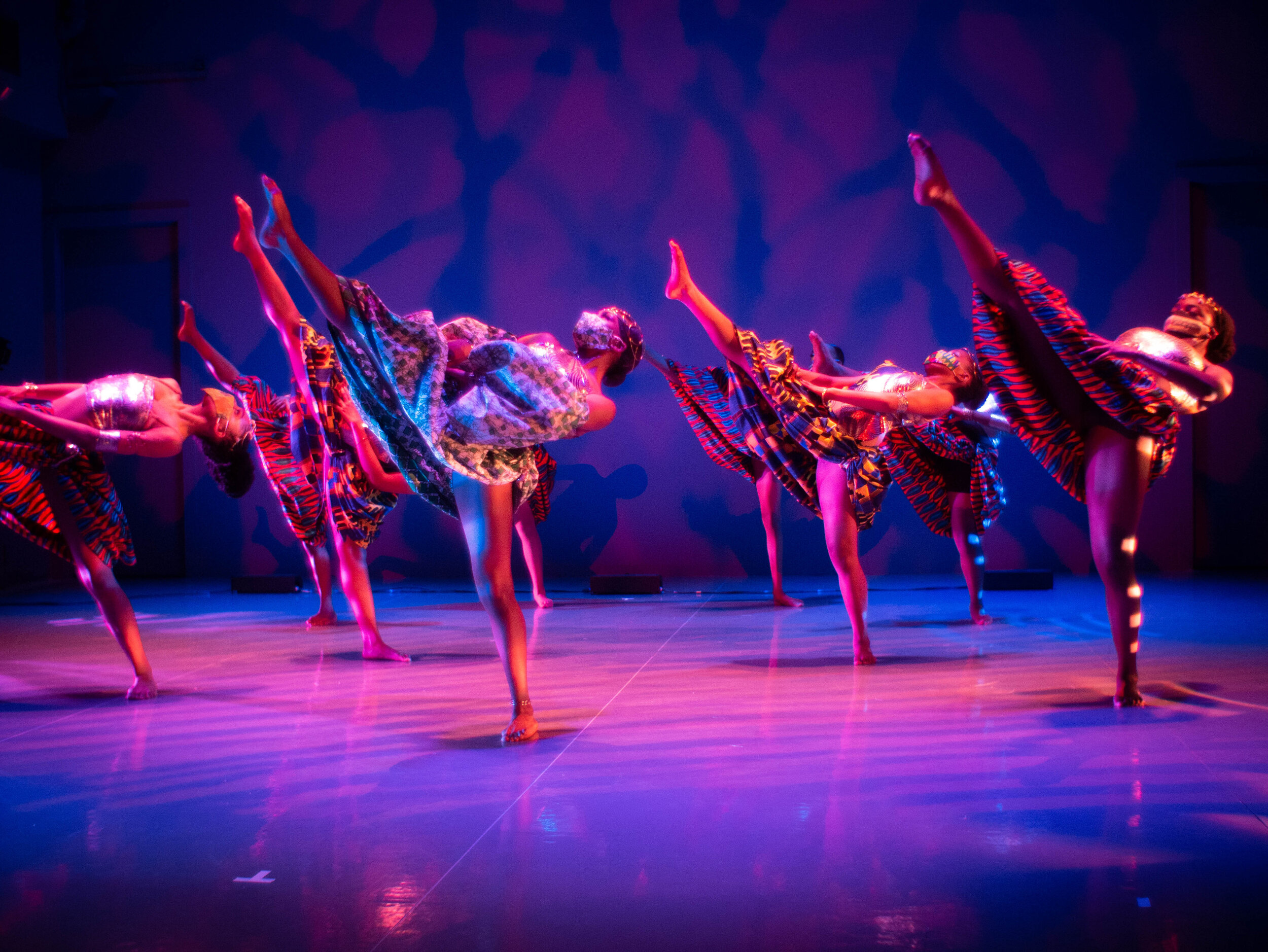This past month, the Greater Washington Community Foundation gathered with donors and partners from across the region to celebrate philanthropy in Prince George’s County and Montgomery County at the 2022 Civic Leadership Awards and the Celebration of Giving. Here are a few highlights from the events:
Igniting the Power of Philanthropy in Prince George’s County
The party started early at the MGM at National Harbor, as friends and supporters of The Community Foundation’s local office in Prince George’s County gathered for the 2022 Civic Leadership Awards. Tracee Wilkins, Prince George’s County Bureau Chief with NBC4, served as master of ceremonies for Prince George’s County’s first major event since before the COVID-19 pandemic.
“We are so excited to be reunited with so many of you in person, after so long,” President and CEO Tonia Wellons shared. “We look forward to sharing a memorable evening with all of you.”
The evening proved to be both memorable and emotionally moving. The program started off with a moving tribute to the first Civic Leadership Award recipient, The Sardelis Family of Sardi’s Pollo A La Brasa. Founded in Prince George’s County, Sardi’s has quickly become a cornerstone of the community – both for the quality of its food, as well as its commitment to give back during the pandemic. The award was accepted by Phil E. Sardelis, whose cousin and co-founder, Phil G. Sardelis tragically passed away last year due to COVID complications.
Mr. Sardelis was followed by the presentation of the second Civic Leadership Award to Rosie Allen-Herring, President & CEO of the United Way of the National Capital Area – a champion for progress in Prince George’s County. Long-time friend Steve Proctor of G.S. Proctor & Associates presented the award via prerecorded message, extolling Rosie’s commitment to family and the region as a whole.
Rosie was followed by the presentation of Nonprofit Leader of the Year Award to Rick & Dawn Collins of the 2nd Lieutenant Richard W. Collins III Foundation. There was scarcely a dry eye in the room, as Dawn Collins tearfully shared how much this recognition meant for their family’s ongoing work against hate crimes – a mission they have undertaken since their son was brutally murdered by a White Nationalist in 2017.
Rick and Dawn were one of four nonprofit leaders nominated for the award. The other three nominees – who were also recognized -- included Lupi Quinteros-Grady of Latin American Youth Center, Deborah Martinez of Mission of Love Charities, and Rob Malone of The Arc Prince George’s County.
After Rick & Dawn, the Corporate Philanthropist of the Year Award was presented to IKEA College Park – in recognition of its investment in the region during the pandemic, when the Swedish-based company invested $1 million to support The Community Foundation’s pandemic response, as a way to “pay it forward” in acknowledgment of the unemployment benefits collected by furloughed employees from Maryland, including the College Park store. The award was accepted by IKEA College Park Market Manager for the DC area, Tony Giacona.
He was followed by the presentation of the Wayne K. Curry Award for Leadership & Public Service to The Honorable Kris Valderrama of Maryland’s 26th District. Named after the first African American to serve as Prince George's County Executive, the Wayne K. Curry Award acknowledges outstanding elected officials who advocate for and champion change in Prince George's County. Kris has served as Maryland's 26th District Delegate since 2006, where she has championed legislation advocating for the rights and needs of Prince George's County's residents in the state of Maryland.
After Kris, Veronica Jeon presented the Chairman’s Award to Prince George’s County Advisory Board Member and Host Committee co-chair Chris Borgal, in recognition of his contributions to The Community Foundation’s efforts in Prince George’s County.
The final award of the evening, the Emerging Leader of the Year Award was presented to John Edward, General Manager of Bond 45. Born in Egypt, John moved to the US to pursue his American Dream in the hospitality industry and provide a better life for his family. His charisma and commitment to quality service has captured the hearts of many in Prince George’s County.
John was one of four Emerging Leaders nominated for the award. The other nominees included Altmann Pannell of Coca-Cola Consolidated, The Honorable Mahasin El Amin, Clerk of Circuit Court for Prince George’s County, and Husein Sharaf of Cloudforce.
Additional information on our honorees – including personalized tribute videos – are available on our website.
Celebrating Giving in Montgomery County
On November 16th, donors and community partners in Montgomery County gathered for the Celebration of Giving, honoring the 2022 Montgomery County Philanthropist of the Year, Mimi Brodsky Kress.
A third generation Washingtonian, Mimi Brodsky Kress maintains a deep commitment to her home community of Montgomery County through both her personal philanthropy and as the co-owner of Sandy Spring Builders, where she is one of only a few women builders in the area.
During the program, Mimi joined Bethesda Magazine President Sumindi Peiris onstage for an “Oprah Winfrey”-style interview, where she shared the motivation that compels her to get deeply involved in her community.
“If there’s one thing my parents taught me,” Kress shared, “it was the importance of the Jewish principle of ‘Tikkun Olam’ – that we need to actively engage in action to repair the world.”
Those closest to Mimi know that being actively engaged is something she is very good at. In addition to running a small business, Mimi is volunteers extensively with Habitat for Humanity, leading a group of women called “the Hammer Chicks” who get out into the field and help build affordable homes. Her leadership on the boards of several local charities – including (but not limited to) the National Alliance on Mental Illness in Montgomery County, Jewish Women International, and the Jewish National Fund — has been game-changing, leading to organizational growth and expansion of services to meet increasing demand.
We are grateful to Mimi for allowing us to shine a spotlight on her, knowing her example will inspire many others to give and get involved in our local community.
Additional information about our 2022 Philanthropist of the Year is available in this Bethesda Magazine Article and on our website. You can also view this special tribute video that was debuted at the event.









